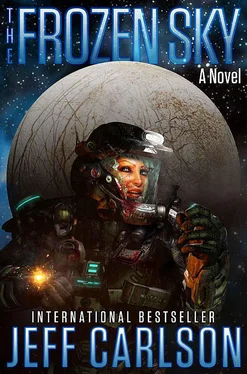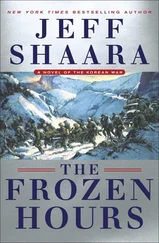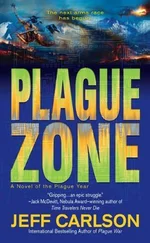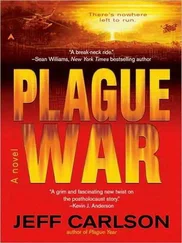Her mind had felt very, very small in those hours — too small for any thought except to get away from the lethal, creaking weight of the collapsed vent above her.
Deep radar let her identify load-bearing sections in the ice. She’d climbed, cut, excavated and squirmed from one miniscule safe zone to another, using her arms like shovels, numbly reaching forward more times than she could count. Her knees and belly ached from contorting through the gaps.
She remembered listening for every groan and crack in the ice. She remembered the red bar of an alarm on her visor warning that her air reserves were at sixty minutes.
Her endless crawl had stopped, perhaps forever, as she curled herself in a hole no larger than a coffin to rig an electrolysis unit from her tool kit. The job became her entire focus. She was in shock, and concentrating on an attainable goal was exactly what she needed.
She assembled two electrode plates, a pump, and a compressor inside a slim steel box. She mounted the unit on her shoulder, then fed ice into the hopper, separating the oxygen from the hydrogen. Her cylinders recharged. And if her new air was contaminated, if there were Europan microorganisms or toxins in the ice, what choice did she have? Cooking the ice should sterilize any pathogens. Her screens showed no detectible sulfurs or dioxides. Nor could she smell anything peculiar.
When she finally emerged into the pocket world, she was startled to realize how much time had passed. She’d been worming through the ice for the better part of an Earth day — nearly twenty hours.
She wasn’t hurt except for a sprained elbow.
She was alone.
Not one of her comm links were active. The relays she’d left above the sink hole must have been scattered and crushed when the vent collapsed. Maybe she’d fallen further than she thought.
The pocket world was safe, but she couldn’t stay. The other ships were seventy-five hours out and it would take them several more hours to gear up and scout for her, even longer to forge their way through the crumbling mass.
She had to find a way back to the surface. She could continue to replenish her oxygen and water supplies from the ice, but she’d gorged herself as soon as she’d noticed her hunger. Her suit offered top-of-the-line meat dishes, pastas, fruits, and desserts like only the wealthiest people on Earth could afford, with the caveat that her meals were pastes fed from tubes inside her helmet… Now bulk was more critical than nutrition or pleasure. She would have traded every fruit pack and candy for more carbohydrates.
Her remaining supplies might last eight or nine days, twelve at the outside. Before then, she would get weak.
Could she eat the bugs?
No , she thought. It wouldn’t come to that. It couldn’t. Besides, they might make her ill.
She regretted not having beacons to leave in the pocket world. Bauman especially would have been enthused by the bugs, but most of Vonnie’s mecha were gone. She only had one left — a burrower — plus three miniature relays attached to her chest plate. She sent them exploring. Then she sat quietly, mourning and resting, even napping for three hours.
Her camera lights were dazzling in the wet ice as she gazed through her visor, comforted by the use of normal light and vision.
Discolored rimes of minerals permeated the uneven floor and walls of the cave. That meant the hot springs routinely overflowed. The bubbling water was saturated with iron and salt. It tainted the ice and poisoned the bugs, which avoided the most concentrated salt deposits.
The atmosphere was oxygen-rich, although it was nothing that would support a human being, laced with hydrogen chloride. More interesting, the pressure was five times what she’d seen near the surface, due in part to a lower altitude but mostly because this hollow was self-contained.
Neither species of bug had eyes or even the most primitive photo receptors. They used fan antennae and scent instead. They were basically helpless. Droplets fell steadily or in periodic rains. The chamber floor was pebbled with a thousand specimens sealed beneath the ice.
Vonnie collected ten bugs from each species and put them in her chest pack, then added samples from the bacterial mats.
The mats were vital evidence to prove the foundation of Lam’s evolutionary theory. It took billions of microbes to form something large enough to be seen by human eyes. These slimes grew in blots as fine as a needle point and as imposing as a stranger’s shadow.
She thought she could identify three different strains. One reached into the air with tendril-like fuzz. Two commingled in a symbiotic relationship, possibly using iron and water for food. This pale muck had learned to expand from the hot springs onto the ice. Vonnie supposed it used layers of dead material as insulation. Maybe it fed from the melting surface.
One thing was obvious. The bugs’ mortality rate, while high, wasn’t enough to keep them from outgrowing their food source. This pocket ecology was more than incomplete; it was unworkable; it was temporary.
Vonnie was frustrated when she built Lam’s ghost to help her. Doing so was illegal, but she was beyond any concern except survival.
Her first words to him were harsh. “Hey. Can you hear me?”
— Online .
“Your name is Choh Lam. You killed yourself and my friend because you couldn’t wait five damn seconds for an engineer to tell you not to bang on the ice.”
— Consolidating files .
“Never do anything again unless I tell you. Understood?”
— Negative. What are my instructions ?
“I need to know where I am. Can you piece together my coordinates in relation to the surface?”
— Negative. Further access to core systems required.
“Goddamn it!”
Throughout Europe and North America, combining human mem files with low-level AIs was forbidden. Organic minds were extensive, subtle, and predisposed to neurochemical and emotional imbalances. Failing to place the slightest piece of the puzzle could have severe consequences.
Duplicating the living or resurrecting the dead also crossed ethical lines and medical considerations. In her childhood, thousands of court cases dealing with family, property, and tax laws had led to a widespread revulsion for electronic personalities. Many of them were distorted nightmares of themselves.
Some cultures stood as exceptions. China and Korea permitted human-based AIs, keeping their ancestors with them. In the Middle East, there were immortal holy men.
Vonnie didn’t have the computing power of those governments. Most of her suit’s systems were Level VII intelligences. Each one was a task-specific processor. Those subroutines accomplished intricate feats like her visor’s retinal response program and brute work such as balancing 220 kilos of armor in motion without falling over.
If idle, each system functioned as spare memory. They were intended to draw on each other in crisis. By permanently linking a hundred subroutines, Vonnie created enough quantum memory to host a Level II intelligence with self-awareness and personality, but she was angry at Lam and afraid of dying in this impossible world.
Bauman would have been a better companion. Vonnie wouldn’t have tried so hard to control her. The disaster she made of Lam was erratic because he was missing too much. She wanted him to be cautious, even timid.
She didn’t trust the result.
When her mecha reported a mild current of atmosphere 1.9 kilometers from the bugs’ home, Vonnie shut down the ghost. She called her mecha back to her. After they rejoined her, she attached the minis to her chest in their carry sockets and made sure the burrower was slavecast to her suit.
She dug her way through old cave-ins and membranes of ice, following a conduit left by the minis. From their data, she knew there were more vents nearby.
Читать дальше












